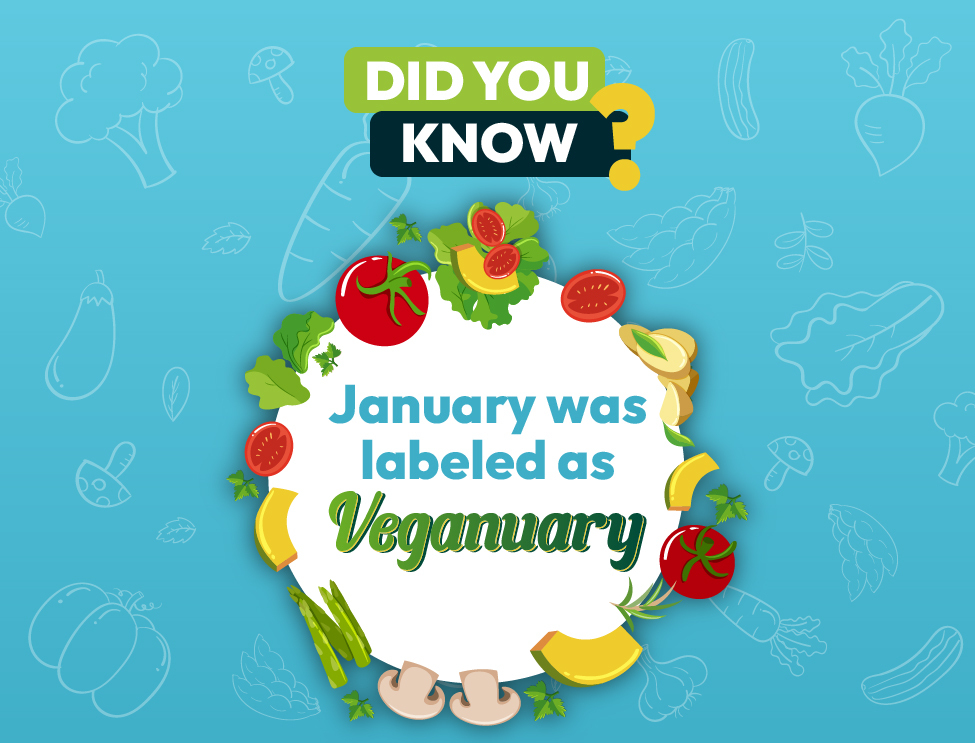If you’re wondering how you can make the switch to a plant-based diet without feeling overwhelmed or like you’re compromising on your food sovereignty, read on. We’ve got some tips for making the transition a little easier. From stocking your kitchen with non-animal-based staples to organizing your time and lifestyle around a plant-based diet, we have you covered. So whether you’re just starting out or looking to tweak things a bit, read on for some helpful advice.
What is Veganuary?
Veganuary is a yearly global campaign that encourages people to vegan for one month. It started back in 2014, and since then, it has grown into a movement with tens of thousands of participants around the world. There are numerous benefits to going vegan for a month, not the least of which is the impact it has on our environment.
A plant-based diet is responsible for creating less pollution than an animal-based diet, because livestock produce methane – a potent greenhouse gas – as they digest food. By going vegan, you’re also cutting out dairy products, which contribute to deforestation and water shortages. And last but not least, participating in Veganuary can make you healthier!
There are loads of reasons to try out a vegan lifestyle this January – so why not join in on the celebration?
What are the benefits of being vegan?

- You’ll Lose Weight
A study found that people who went vegan for 18 weeks lost 4.5 pounds (2 kg) more than those who continued eating meat. If you’re trying to lose weight, switching to a plant-based diet is one of the best ways to do it.
- You’ll Improve Your Health
Plant-based diets are linked with lower rates of obesity and heart disease, two major health problems that plague our society. They also tend to be high in fiber and antioxidants, which can help protect your body against disease.
- You’ll Save Money on Food Costs
One study found that vegetarians and vegans cost an average of 40% less than meat or fish-based meals and require a third less time to prepare. That’s a huge chunk of change, especially if you’re living on a tight budget.
- You’ll Help Protect the Environment
Animal agriculture is one of the leading causes of climate change, pollution, and deforestation around the world. Switching to a plant-based diet can help reduce these harmful effects significantly.
How do you go about becoming vegan?
Becoming vegan is a gradual process that starts by educating yourself about the benefits of plant-based diets. There are many resources online and in libraries to help you make the switch, including books, online articles, and documentaries.
One way to begin is by making a list of all the foods you currently eat that contain animal products. Once you have a list, try to think of replacements for each food. Some common replacements for meat include: tofu, tempeh, seitan, legumes (beans, lentils), grains (rice, quinoa), fruits and vegetables. Dairy products can be replaced with plant-based milks such as soy milk or almond milk. If you’re inclined to use eggs, try using flax eggs or chia eggs instead.
What are some of the foods that are vegan?
Are there any foods that you have to avoid when you’re vegan?
Veganism is a way of living that excludes animal products from one’s diet. While there are many different ways to be vegan, some foods that are typically avoided by vegans include meat, dairy, and eggs. Certain foods can be fit in as part of a vegan diet if they are properly prepared or modified.
While it is important to be aware of which foods contain animal products, it is also important to remember that not every food labeled “vegan” is actually safe for someone following a vegan lifestyle. Make sure to read the ingredients list and consult with a health professional if you have any questions about whether a certain food is safe for you to consume on a daily basis.
Conclusion
Now as you know that Veganuary is dedicated to changing public attitudes, while providing all the information and practical support required to make the transition to veganism as easy and enjoyable as possible. Veganuary has had an incredible degree of success in a very short time and is changing lives all over the world.
Veganuary’s founders, Jane and Matthew, knew that month-long pledges were not unusual, but felt that it could be done differently, and perhaps more successfully, by focusing on the month of January; a time for resolutions and new beginnings. What will you do in the New Year? Why not call Illinois Health Careers and get started in a new career.
If you’re not quite ready to commit to a full vegan lifestyle, there are plenty of tasty recipes available online that can help get you started. We hope that this month’s challenge will inspire others to take the first step towards a more compassionate world.


